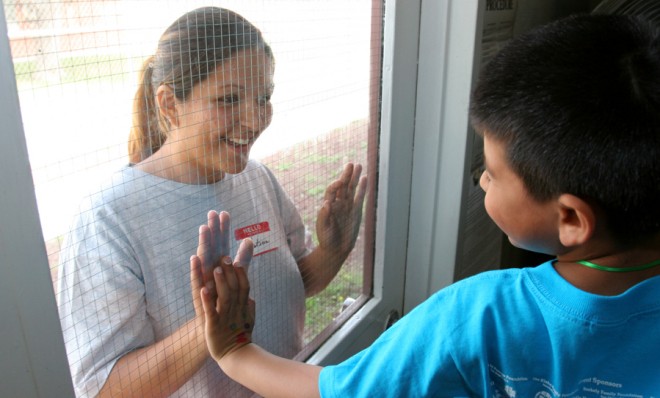Did California prisons illegally sterilize women inmates?
Critics are calling it a massive violation of women's rights


A free daily email with the biggest news stories of the day – and the best features from TheWeek.com
You are now subscribed
Your newsletter sign-up was successful
Doctors working for the California prison system illegally sterilized 148 female inmates without required state approvals between 2006 and 2010, according to a new study by the Center for Investigative Reporting. The investigators concluded that as many as 100 additional women may have been coerced into undergoing tubal ligation surgeries dating back to 1997.
The doctors, working under contract with the California Department of Corrections and Rehabilitation, reportedly targeted pregnant women at the California Institution for Women in Corona and the Valley State Prison for Women in Chowchilla, who were deemed by physicians as being likely to return to prison in the future. One of the doctors, Dr. James Heinrich, denied pressuring anyone, saying he merely offered the surgery to inmates who were at risk of having unsafe pregnancies in the future.
That didn't satisfy critics who saw the program as a gross violation of the women's rights — forced sterilization of prisoners and the mentally ill have been banned in the state since 1979, according to the Center for Investigative Reporting. Laura Beck at Jezebel says the program is proof that "we're currently living in a dystopian future horror fest." It is hardly surprising, she says, that the women — who were, after all, behind bars — did not take the pressure as a caring doctor's friendly suggestion.
The Week
Escape your echo chamber. Get the facts behind the news, plus analysis from multiple perspectives.

Sign up for The Week's Free Newsletters
From our morning news briefing to a weekly Good News Newsletter, get the best of The Week delivered directly to your inbox.
From our morning news briefing to a weekly Good News Newsletter, get the best of The Week delivered directly to your inbox.
Take Kimberly Jeffrey, for instance. The 43-year-old says she was pressured into a tubal ligation while she was sedated and strapped to a surgical table, about to give birth. This, after she repeatedly rejected previous requests from prison medical staff to perform the procedure. "[Heinrich] said, 'So we're going to be doing this tubal ligation, right?'" Jeffrey said. "I'm like, 'Tubal ligation? What are you talking about? I don't want any procedure. I just want to have my baby.' I went into a straight panic." [Jezebel]
Heinrich, a former OB-GYN at the prison, said the program, at a cost of $147,460, actually yielded health benefits for women facing potentially risky childbirth because of past caesarians. "Over a 10-year period, that isn't a huge amount of money," Heinrich reportedly told the researchers, "compared to what you save in welfare paying for these unwanted children — as they procreated more."
That quote, included in the report, triggered an avalanche of outrage from commentators. Jason Easley at Politics USA said it suggested that — as one inmate remarked — the doctors were treating the inmates like animals they didn't want to allow to breed any more.
We all think of eugenics as something that was associated with the Nazis, but America also has a dark history of selective sterilization. At one time, 33 states had programs that sterilized 65,000 Americans into the 1980s. Forced or coerced sterilizations aren't something that just happens in other countries. They are happening in the United States of America.The defenders of the secret sterilization program that was going on in California describe it as empowering the female inmates. This is the same kind of language that Republicans use to promote legislation that takes away a woman's right to choose. People have never been empowered by the loss of a choice or a right. It goes against all logic that less self determination makes an individual more free. [Politics USA]
A free daily email with the biggest news stories of the day – and the best features from TheWeek.com
Harold Maass is a contributing editor at The Week. He has been writing for The Week since the 2001 debut of the U.S. print edition and served as editor of TheWeek.com when it launched in 2008. Harold started his career as a newspaper reporter in South Florida and Haiti. He has previously worked for a variety of news outlets, including The Miami Herald, ABC News and Fox News, and for several years wrote a daily roundup of financial news for The Week and Yahoo Finance.
-
 Political cartoons for February 21
Political cartoons for February 21Cartoons Saturday’s political cartoons include consequences, secrets, and more
-
 Crisis in Cuba: a ‘golden opportunity’ for Washington?
Crisis in Cuba: a ‘golden opportunity’ for Washington?Talking Point The Trump administration is applying the pressure, and with Latin America swinging to the right, Havana is becoming more ‘politically isolated’
-
 5 thoroughly redacted cartoons about Pam Bondi protecting predators
5 thoroughly redacted cartoons about Pam Bondi protecting predatorsCartoons Artists take on the real victim, types of protection, and more
